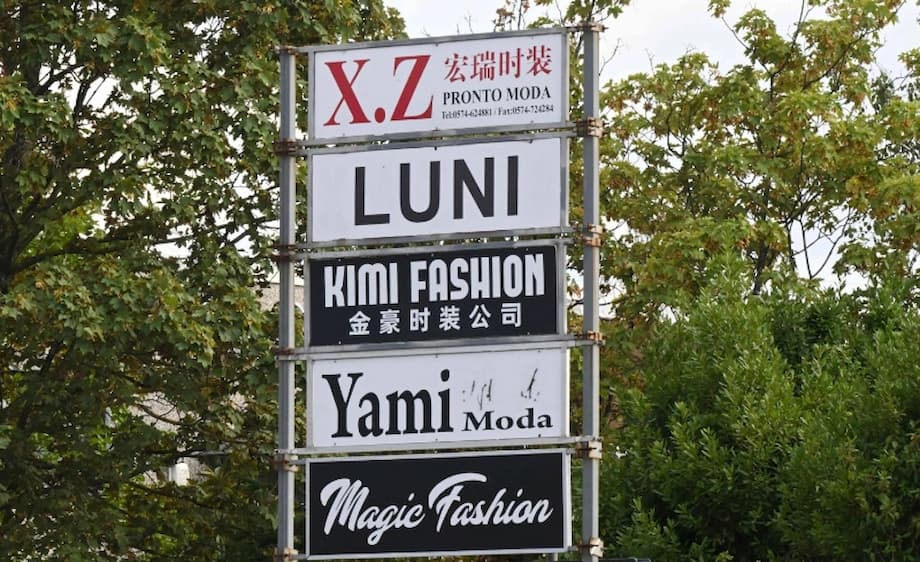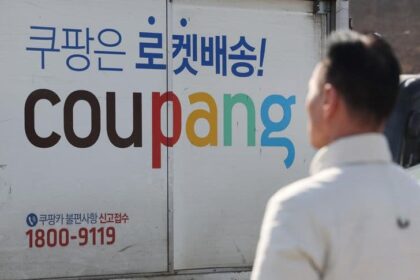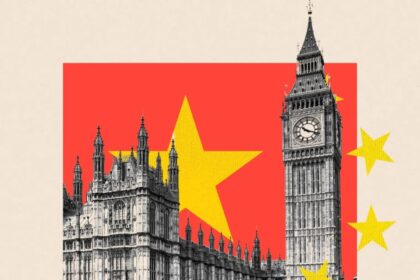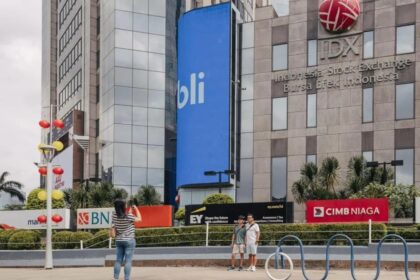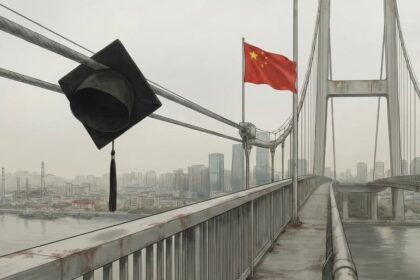Violence and Power Struggles in Prato: The Heart of Italy’s Fast Fashion Industry
When Zhang Dayong, a senior figure in the Chinese underworld, was gunned down on a Roman sidewalk, few suspected the roots of the violence stretched north to Prato, a city near Florence. Yet, this shocking murder was just the latest flashpoint in a ruthless turf war that has turned Prato—Europe’s largest apparel manufacturing center and a pillar of the “Made in Italy” brand—into a battleground for warring Chinese mafia groups. The so-called “hanger war” is not just about control of clothes hangers, but about dominance over a vast, lucrative network of textile production, logistics, and illicit activities that reach across Europe.
- Violence and Power Struggles in Prato: The Heart of Italy’s Fast Fashion Industry
- How Prato Became Europe’s Fast Fashion Epicenter
- Inside the ‘Hanger War’: Violence, Corruption, and Fear
- Law Enforcement Fights Back: A Battle on Multiple Fronts
- The ‘Prato System’: Corruption, Irregularities, and the Global Supply Chain
- Beyond Prato: The European Dimension of the Chinese Mafia
- What’s Next for Prato and the Fight Against Organized Crime?
- In Summary
How Prato Became Europe’s Fast Fashion Epicenter
Prato’s transformation began in the late 1980s and 1990s, when waves of Chinese immigrants, primarily from Zhejiang and Fujian provinces, arrived seeking opportunity. They found a struggling textile industry and quickly revitalized it, importing cheap fabrics from China and establishing thousands of small, agile workshops. These businesses specialized in fast fashion—producing affordable garments at lightning speed for markets across Europe. Today, Prato is home to one of Europe’s largest Chinese communities, with estimates of over 5,000 mostly Chinese-run apparel and knitwear businesses.
Many of these workshops operate on the margins of legality. They pop up and shut down rapidly, often to evade taxes, labor inspections, or fines. The sector relies heavily on cheap, round-the-clock labor, with workers—mainly from China and Pakistan—reportedly earning as little as €3 an hour for grueling 13-hour shifts, seven days a week. This system, sometimes referred to as the “Prato system,” is rife with corruption, labor and safety violations, and tax and customs fraud. Fabric is frequently smuggled in from China, and profits are sent back through underground money transfers.
The Rise of the Chinese Mafia in Prato
As the Chinese community in Prato flourished, so too did organized crime. Chinese mafia groups, often referred to as “triads,” began to infiltrate the industry, initially focusing on people smuggling and illegal immigration. Over time, their interests shifted to extortion, commercial racketeering, and, crucially, control over the logistics and transport of goods. The stakes are enormous: the market for clothes hangers alone is estimated at €100 million, but the real prize is the monopoly over transporting apparel across Europe.
According to investigative reports, the most prominent of these groups is led by Zhang Naizhong, known as “The Black Man,” who is considered the “boss of bosses” within Italy’s Chinese mafia. Zhang’s organization is structured much like Italy’s indigenous mafias, demanding absolute loyalty and using violence and intimidation to maintain control. His deputy, Zhang Dayong, was the man killed in Rome—a murder believed to be directly linked to the ongoing turf war in Prato.
Inside the ‘Hanger War’: Violence, Corruption, and Fear
The “hanger war” is a brutal contest for dominance. Chinese mafia groups have been accused of orchestrating assaults, arson attacks, and even murders to intimidate rivals and consolidate their grip on the industry. In recent months, Prato has seen Chinese business owners and factory workers beaten or threatened, cars and warehouses set ablaze, and a climate of fear descend over the city’s industrial zones. The violence has spilled beyond Italy, with warehouse fires reported in Paris and Madrid—evidence of the mafia’s expanding reach.
Prosecutors and law enforcement officials describe a sophisticated criminal enterprise. The mafia not only controls the production and transport of garments and hangers but also runs betting dens, prostitution rings, drug trafficking, and underground banking networks. These groups facilitate illegal immigration, providing a steady supply of cheap labor for Prato’s factories. They also offer clandestine money transfer services, helping Chinese business owners evade taxes and move profits out of Europe.
Corruption has further enabled the mafia’s rise. In May 2024, a senior police officer was accused of leaking classified information to entrepreneurs, while complaints from attacked workers often went uninvestigated. Prato’s mayor resigned in June amid a corruption probe, underscoring the challenges authorities face in combating organized crime.
The Human Cost: Workers Trapped in the Crossfire
For the thousands of workers in Prato’s fast fashion industry, the mafia war is a daily reality. Many are undocumented immigrants, vulnerable to exploitation and violence. Union organizers report that workers are often too afraid to protest or report abuses, fearing retaliation from both employers and criminal gangs. While some have managed to secure legal contracts and better conditions, the majority remain trapped in a system described as “free from laws and contracts.”
One union representative explained,
“The industry operates outside the law. Immigrants work long hours for little pay, and anyone who complains risks losing their job—or worse.”
The climate of fear is pervasive, with ordinary people risking injury or death in a conflict that has little to do with their daily work.
Law Enforcement Fights Back: A Battle on Multiple Fronts
The scale of the crisis has prompted urgent appeals for help. Prato’s chief prosecutor, Luca Tescaroli, has called on the Italian government to establish a dedicated anti-mafia division and send reinforcements for judges and police. In 2018, Italian police arrested 33 people suspected of running a Chinese mafia organization that dominated the transport of Chinese products in Europe. The operation drew international attention, highlighting the economic reach and sophistication of Chinese gangs in Italy.
Authorities seized assets worth millions of euros, including bank accounts, vehicles, and real estate. Yet, despite these efforts, many of those arrested—including Zhang Naizhong—were released due to insufficient evidence. The closed nature of the Chinese community, language barriers, and the mafia’s use of fear and intimidation make investigations extremely difficult. Crimes often go unreported, and witnesses are reluctant to cooperate with police.
Prosecutors say the mafia’s business model is evolving. While traditional activities like drug trafficking and prostitution remain lucrative, the real power lies in controlling the logistics and transport sector. The gang’s network extends beyond Italy, with branches in Paris, Neuss (Germany), Madrid, and Barcelona. Police believe attacks and threats in these cities are part of a coordinated strategy to eliminate competitors and establish a monopoly over the movement of Chinese-made goods across Europe.
The ‘Prato System’: Corruption, Irregularities, and the Global Supply Chain
The so-called “Prato system” is at the heart of the problem. This term refers to the web of corruption, irregularities, and legal loopholes that allow the fast fashion industry to operate largely unchecked. Businesses routinely evade taxes and labor laws, smuggle fabric and goods to avoid customs duties, and rely on informal networks to move money and people. The system is sustained by a combination of economic necessity, weak enforcement, and the complicity of some local officials.
Prato’s fast fashion industry is a microcosm of globalization’s darker side. On one hand, it has revived a struggling local economy, created jobs, and made “Made in Italy” products accessible to millions. On the other, it has fostered exploitation, criminality, and social tensions. The presence of the Chinese mafia has raised concerns about the integrity of Italy’s fashion industry, with some fearing that the “Made in Italy” label is being undermined by illegal practices and foreign criminal influence.
Impact on Traditional Italian Businesses
Traditional Italian textile firms have struggled to compete with the speed and low costs of Chinese-run workshops. Some have accused the newcomers of unfair competition, tax evasion, and disregard for local customs. Others acknowledge that the Chinese community has brought new life to Prato’s economy, even as it has changed the city’s social fabric. The relationship is complex, marked by both cooperation and tension.
Luxury brands like Gucci and Prada have outsourced production to Prato, taking advantage of the region’s skilled labor and efficient supply chains. However, increased scrutiny of supply chains and periodic government crackdowns have forced some Chinese factories to adapt, hiring workers from other countries and seeking partnerships with Italian firms to gain legitimacy.
Beyond Prato: The European Dimension of the Chinese Mafia
The battle for Prato is not confined to Tuscany. The Chinese mafia’s influence extends across Europe, with operations in France, Spain, Germany, and beyond. The group’s control over logistics and transport gives it a strategic advantage, allowing it to move goods, people, and money across borders with relative ease. Police in Germany and France have confirmed investigations into Chinese-dominated organized crime groups, citing offenses ranging from tax and customs fraud to nightlife-related crimes.
Italian prosecutors warn that the escalation in crime has become a massive business operation, with the potential to destabilize not just Prato but the broader European fashion industry. The violence in Prato is a symptom of a larger struggle for control over the global supply chains that underpin fast fashion—a multi-billion-euro industry that relies on speed, flexibility, and, all too often, the exploitation of vulnerable workers.
What’s Next for Prato and the Fight Against Organized Crime?
The future of Prato—and the integrity of Italy’s fashion industry—hangs in the balance. Authorities are stepping up efforts to combat organized crime, but the challenges are formidable. The closed nature of the Chinese community, the adaptability of criminal networks, and the economic pressures driving the fast fashion industry all complicate the fight.
Some progress has been made. Unions have secured legal contracts for a minority of workers, and increased scrutiny from luxury brands has forced some factories to improve conditions. Yet, the majority of workers remain vulnerable, and the mafia war shows no sign of abating. The resignation of Prato’s mayor amid a corruption scandal and the exposure of police collusion highlight the need for systemic reform.
Experts argue that only a coordinated, multi-level response—combining law enforcement, labor protections, and community engagement—can hope to dismantle the mafia’s grip on Prato. As the city grapples with violence, corruption, and social change, its fate will serve as a test case for Europe’s ability to confront the darker side of globalization.
In Summary
- Prato, Italy’s fast fashion hub, is at the center of a violent turf war between Chinese mafia groups vying for control of the garment and logistics industries.
- The so-called “hanger war” involves not just hangers but the broader transport and production of apparel, with the market worth hundreds of millions of euros.
- Chinese mafia groups have used violence, intimidation, and corruption to consolidate power, exploiting vulnerable immigrant workers and evading law enforcement.
- The “Prato system”—marked by corruption, labor violations, and tax evasion—has enabled the rise of organized crime and undermined the integrity of the “Made in Italy” brand.
- Authorities are struggling to combat the mafia’s influence, with calls for a dedicated anti-mafia division and systemic reforms to protect workers and restore order.
- The outcome of Prato’s struggle will have implications for Europe’s fashion industry and the fight against transnational organized crime.


